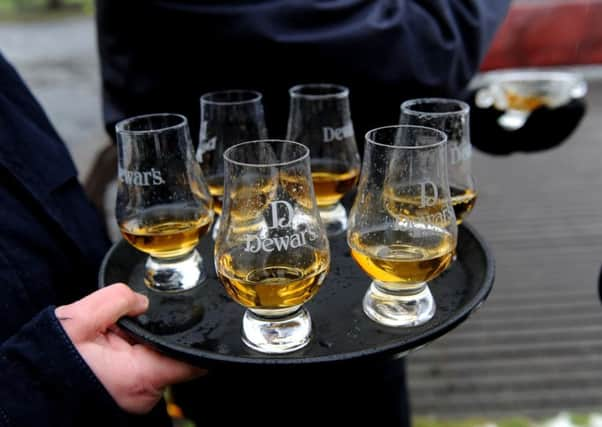Whisky and salmon fail to narrow food trade deficit
This article contains affiliate links. We may earn a small commission on items purchased through this article, but that does not affect our editorial judgement.


The Food & Drink Federation (FDF) said the Brexit-hit pound had ramped up the price of imported ingredients and materials, causing the trade gap to grow by 16 per cent to minus £12.4 billion for the first half of the year.
• READ MORE: Scotland’s food and drink exports rise 11% in a year
Advertisement
Hide AdAdvertisement
Hide AdOn a positive note, strong overseas demand for whisky, salmon and beer has lifted exports by 8.5 per cent to an all-time high of £10.2bn for the period.
While the weakness of the UK currency has forced food producers to stomach increased costs, it has also helped drive international demand by making products cheaper on overseas markets.
Ian Wright, director-general of the FDF, said the low level of the pound was a concern, but the expansion in the exports of food and alcoholic drinks was encouraging.
He said: “It is great to see such strong growth in our exports to EU member states. The EU remains an essential market for UK exports as well as for supplies of key ingredients and raw materials used by our industry.
“We believe there are significant opportunities to grow our sector’s exports further still. The continuing weakness of sterling is a concern. However, we hope that with the determination of businesses and the assistance of Government, we can open more channels and provide a further boost to the UK’s competitiveness on the world market.”
Export sales of branded food and non-alcoholic drink were leading the charge, climbing 11.3 per cent for the first six months of the year.
The greatest export demand came from the EU, boosting its share of sales to 61.2 per cent and outstripping the appetite from markets outside the 27-nation bloc.
Advertisement
Hide AdAdvertisement
Hide AdIt brings into sharp focus the importance of striking a free trade agreement with the EU following Brexit, with Britain set to crash out of the single market in 2019 and Tory ministers making zero headway on a new deal.
Britain’s top three export markets were Ireland, France and the United States, the report said.
UK food minister George Eustice said: “These encouraging figures show that the UK’s high quality foods and high standards are sought after around the world.
“Last week we announced further market access to China for pork producers and UK beef will soon be heading to the Philippines. We will continue to work with industry to open new opportunities.”
Food sales remain a bright spot for UK retailers on home soil after inflation raced ahead of wage growth in response to the fall in the pound.
Retail sales came in ahead of expectations for July at 0.3 per cent, with food sales picking up to 1.5 per cent as all other areas, except household goods, recorded falls.